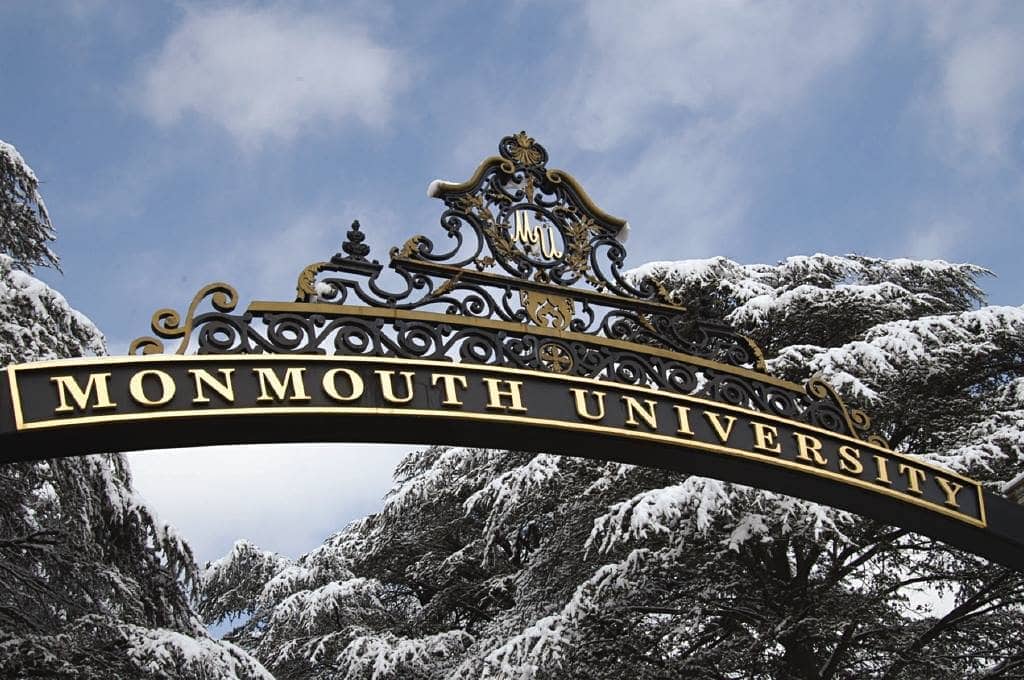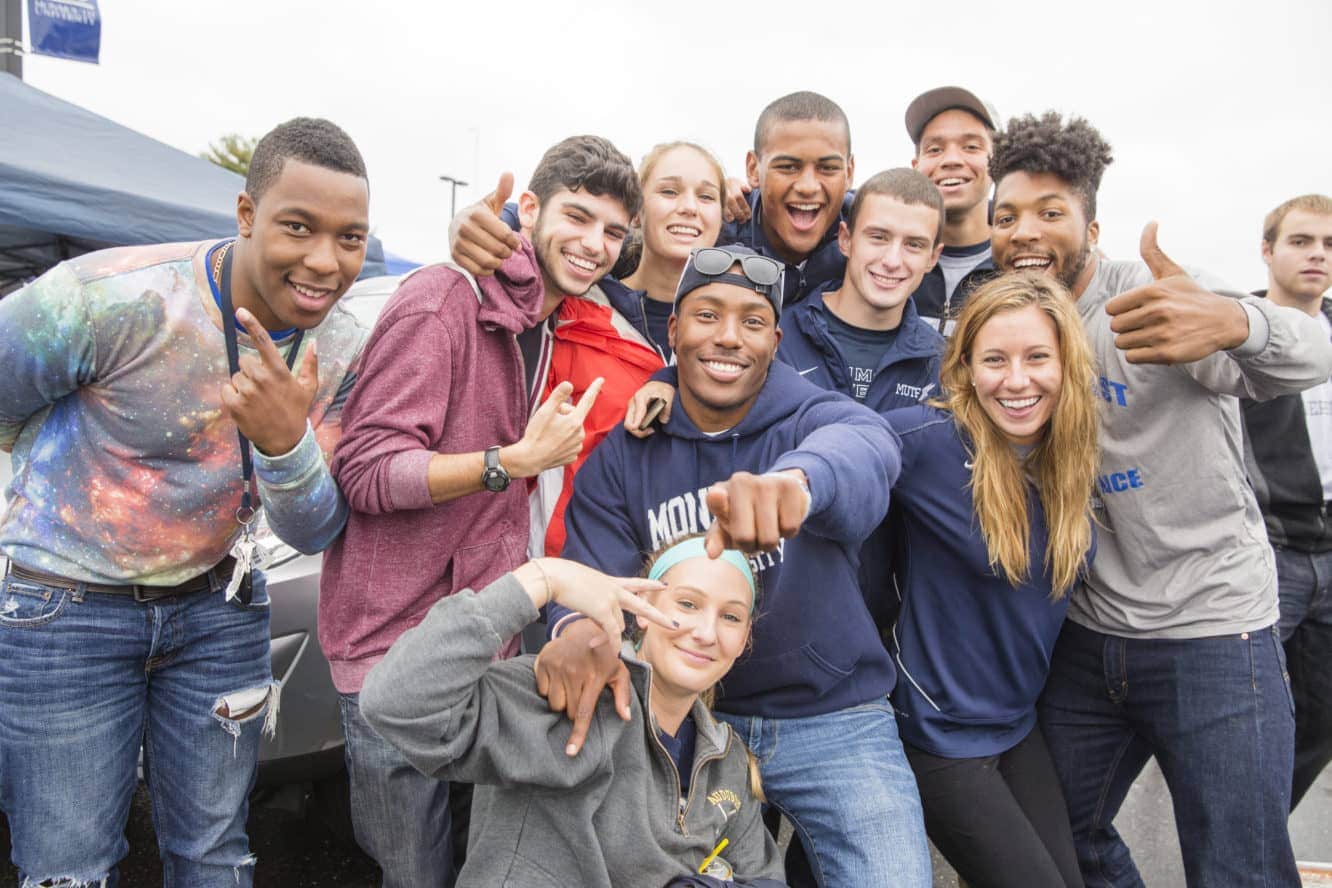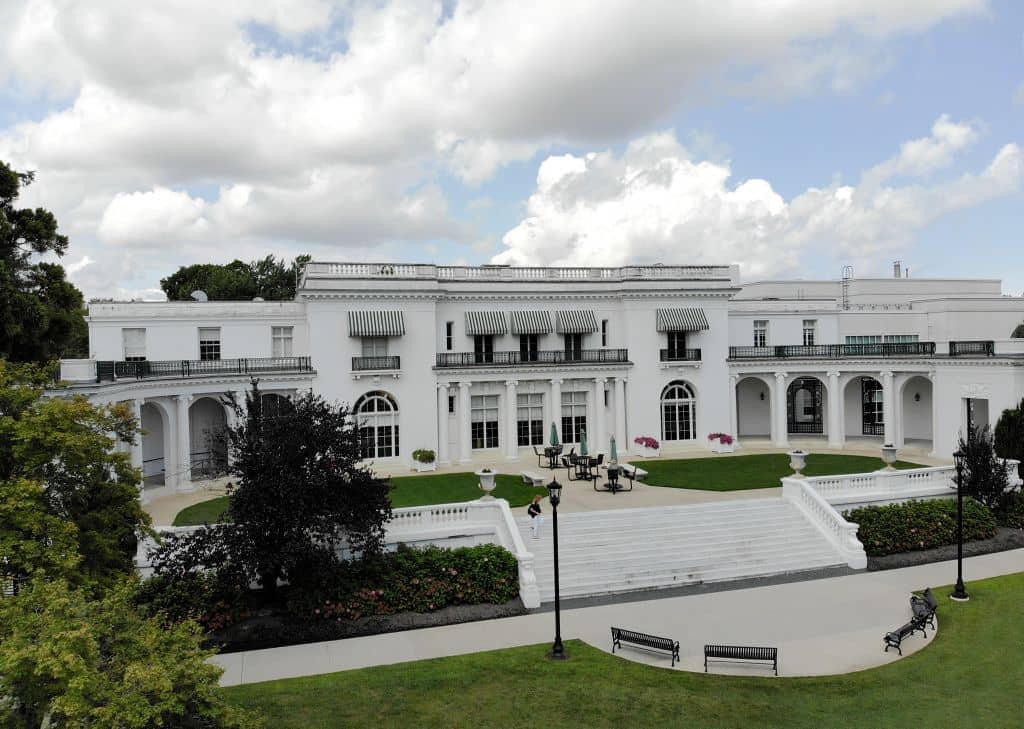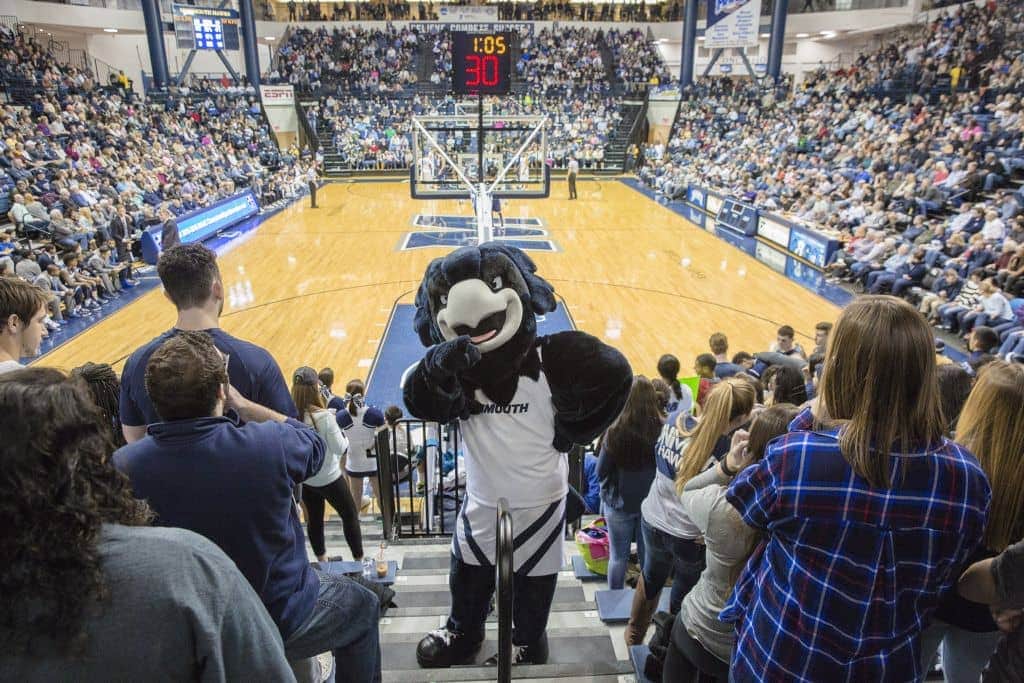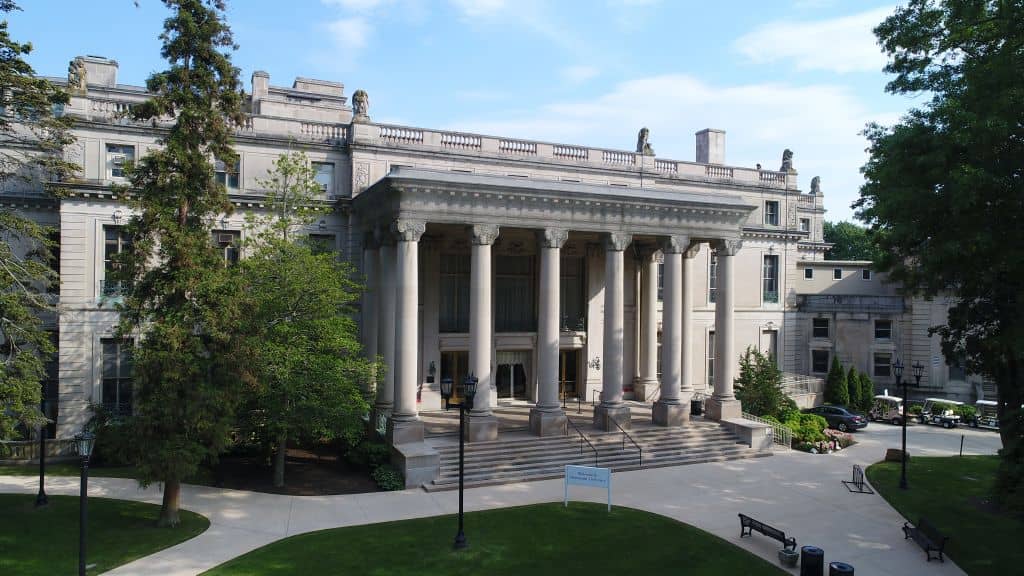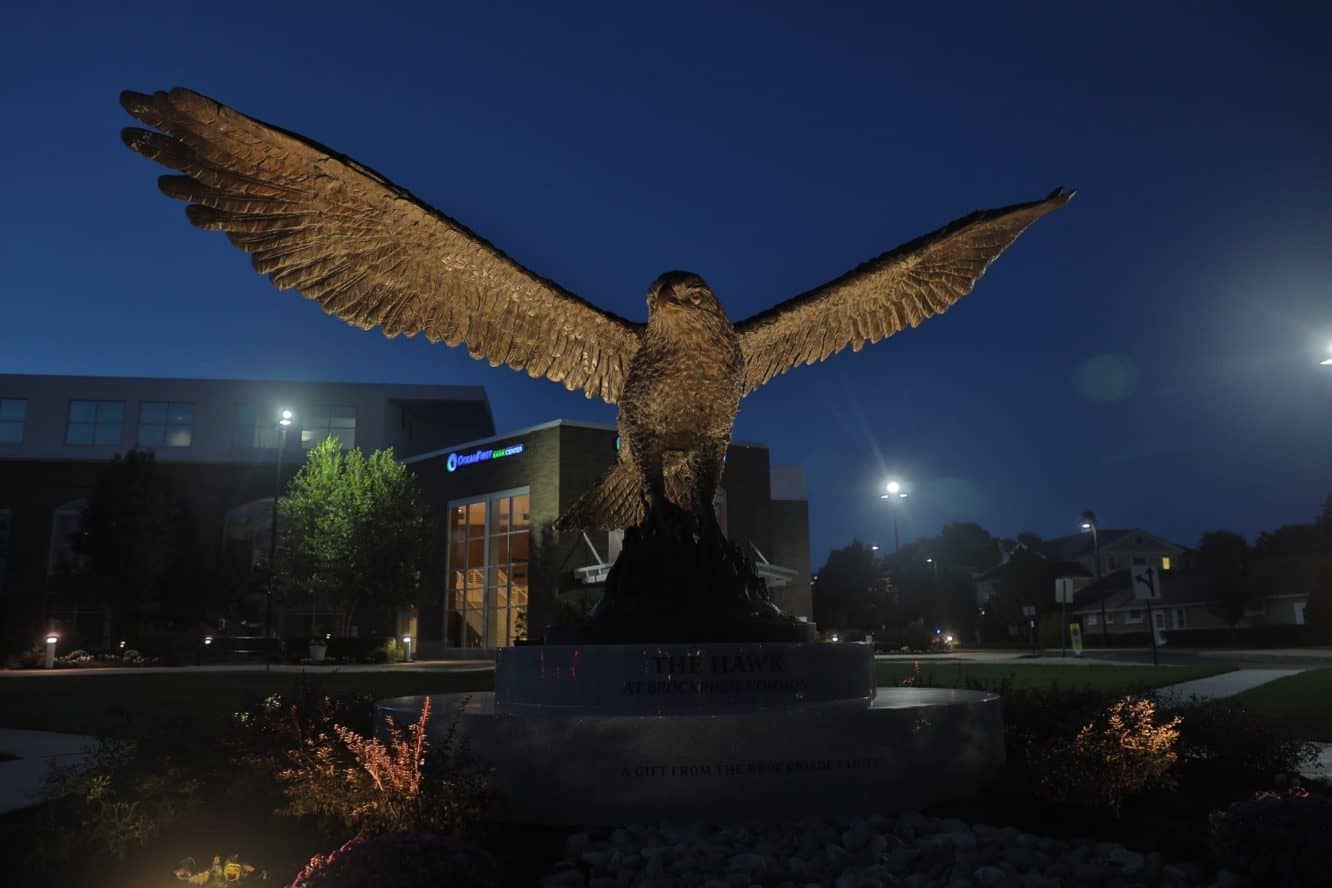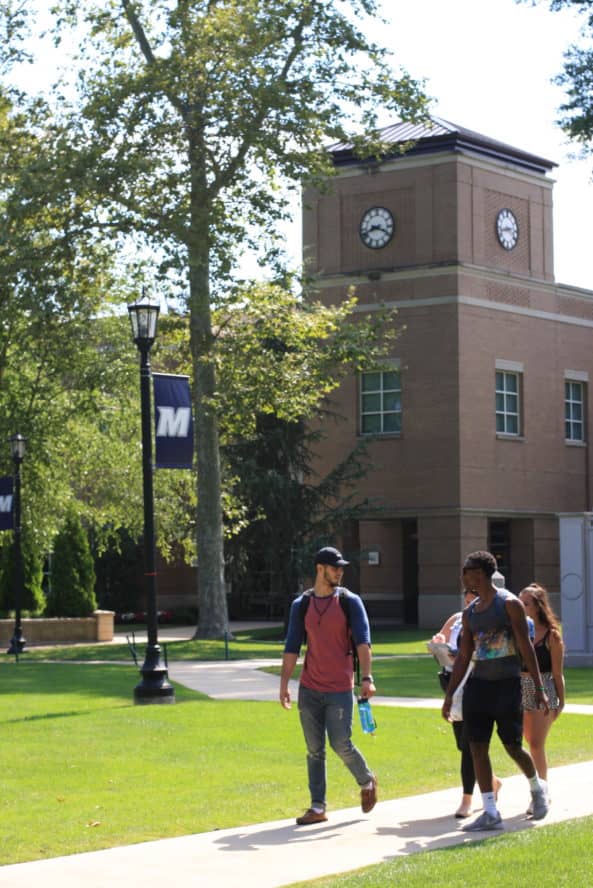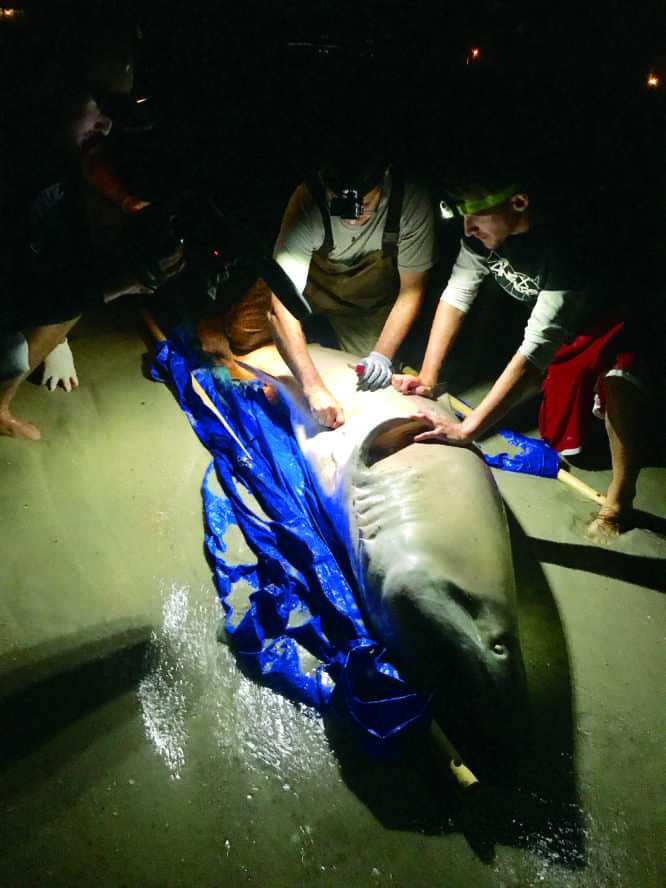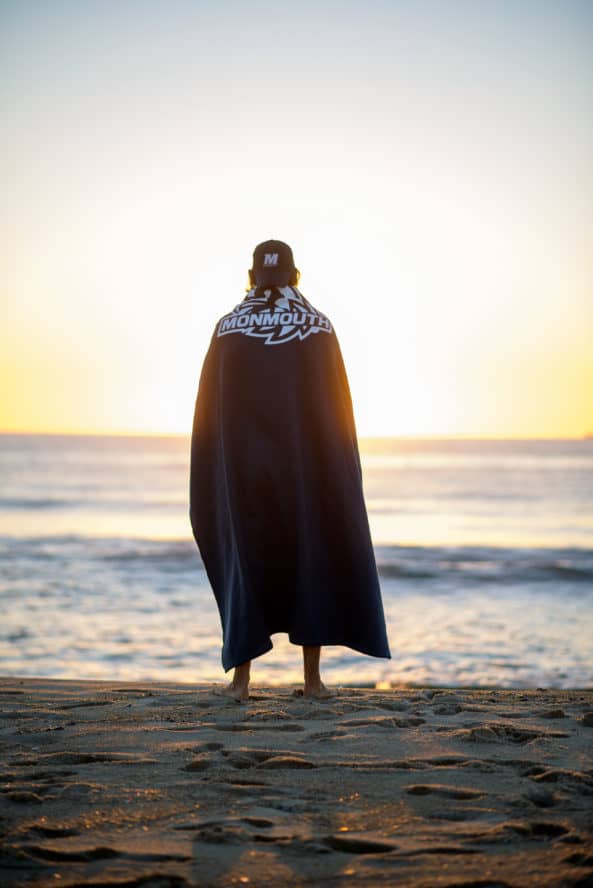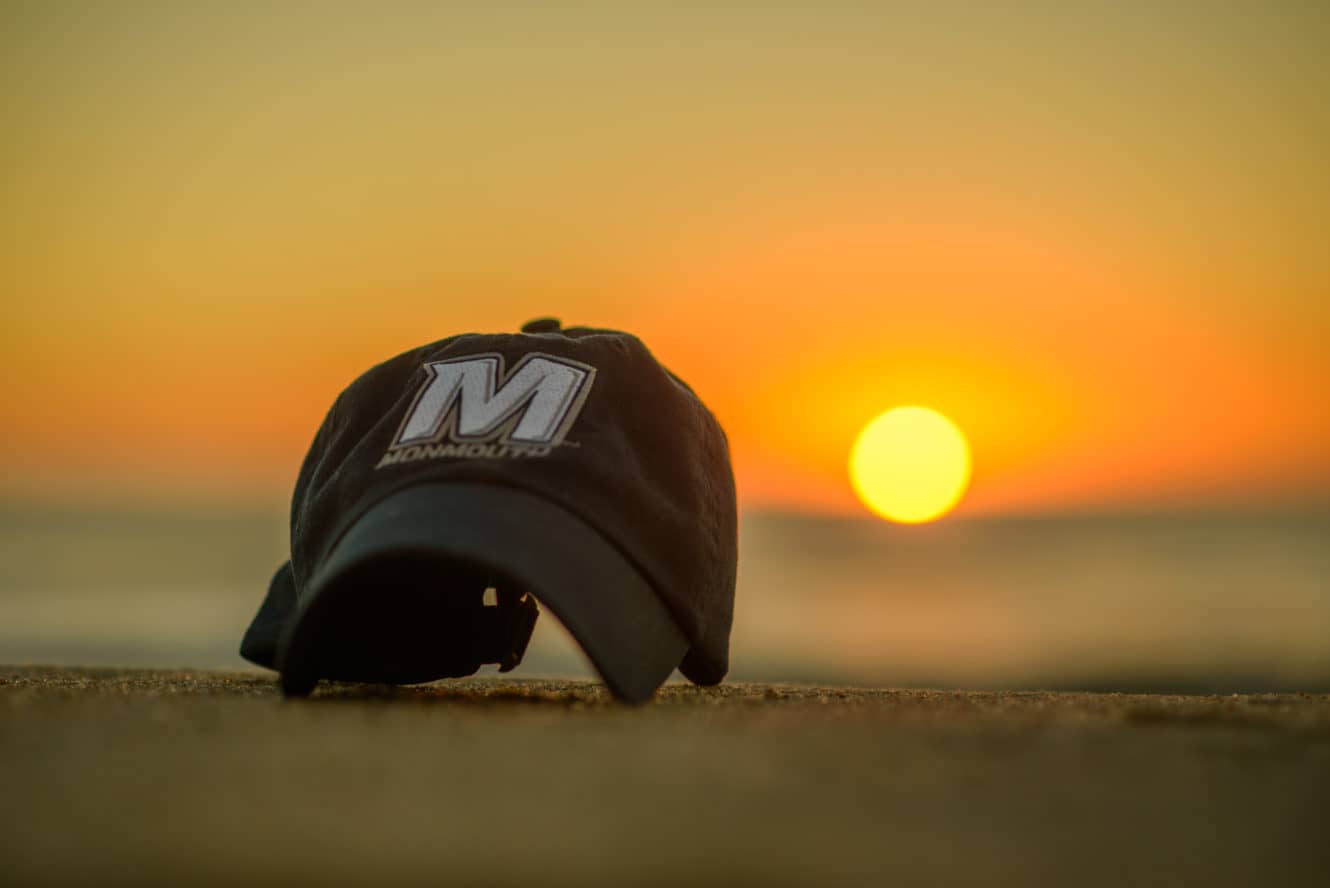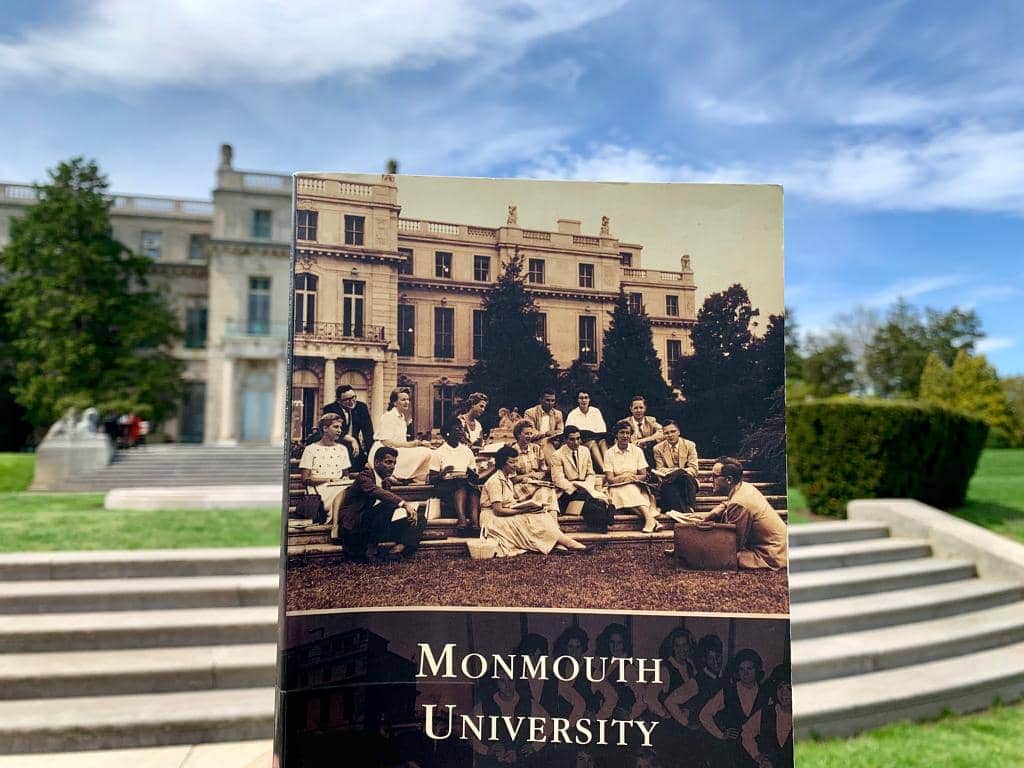Monmouth University
West Long Branch, New Jersey
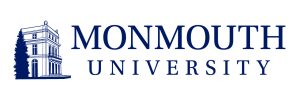
Monmouth University’s coastal campus is one hour away from New York City and Philadelphia, and close to neighboring Asbury Park and Red Bank, allowing students to explore their interests in a dynamic setting. Monmouth’s location provides a large university experience with a personalized approach to education, while expanding internship opportunities and providing students with meaningful college experiences. Rising as a private, non-sectarian, Division I institution, students don’t just build on their exciting passion but amplify their future.
With a diverse student body of approximately 3,700 undergraduate and 1,100 graduate students, Monmouth is large enough to have dozens of majors and degree programs and a breadth of student resources, yet still small enough that instant connections can evolve into life-long friendships and professors can quickly become important mentors.
Students can also participate in over 120 active clubs and organizations, including intramurals and recreational clubs, fraternities and sororities, and media organizations. Visit Monmouth’s 170-acre campus, just a mile from the beach, and you’ll quickly feel the warm, friendly atmosphere and appreciate the historic architecture mingled among modern academic buildings and residence halls. An in-person visit is the best way to get to know Monmouth, experience the positive energy and enthusiasm of students, and learn firsthand why Monmouth could be the perfect fit for you.
Get to know Monmouth University
Benefits
Student Activities
- Campus Ministries
- Choral groups
- Concert band
- Dance
- Drama/theatre
- International Student Organization
- Jazz band
- Literary magazine
- Model UN
- Music ensembles
- Musical theatre
- Pep band
- Radio station
- Student government
- Student newspaper
- Television station
- Yearbook
High-Impact Practices
- First-Year Seminars and Experiences
- Common Intellectual Experiences
- Learning Communities
- Writing-Intensive Courses
- Collaborative Assignments and Projects
- Undergraduate Research
- Diversity/Global Learning
- Service-Learning, Community-Based Learning
- Internships/Coops/Practicums
- Capstone Courses and Projects/Senior Experience
Campus Resources
- Career Services
- Writing Center
- Academic Advisors
- Library Services
- Faculty Mentors
- Disability Services
- Health Services
- Academic Tutors
- Financial Aid Advisors
- Student Success Initiative
- Veteran Services
- Peer Mentors
- Counseling
College Highlights
EXPERIENTIAL EDUCATION
Monmouth’s engaging and experiential education learning process is a general education requirement for all undergraduate students. Experiential education provides a practical, hands-on experience in a setting outside of the classroom, in addition to presenting network opportunities through cooperative education, classes, internships, research projects, service-learning, and studying abroad. Students can also create real-world connections from experiences through the Kislak Real Estate Institute, the Urban Coast Institute, the Bruce Springsteen Archives and the Center for American Music, the Institute for Global Understanding, Center for the Arts, and more.
“I learned so much through hands-on training in the recording studio and from the connections of our professors. Our classes met with industry executives who have worked with award-winning artists. Preparing for every part of the industry—recording, marketing, the business of music—was so valuable for my career.” – Ezrah Archie ’22
UNDERGRADUATE RESEARCH
At Monmouth, real-time skill building is integrated directly into your learning. Through offerings like the Summer Research Program, undergraduate students collaborate with distinguished faculty on diverse and impactful research projects. This hands-on experience not only strengthens your expertise but builds a foundation for post-graduation success. Many students have gone on to present their research at regional, national, and international conferences, as well as co-published work in leading professional journals. By the time you graduate, you’ll have the kind of confidence—and the kind of résumé—that comes from lived-out experiences.
GLOBAL LEARNING
Immerse yourself in another culture, while staying on track toward your Monmouth degree. Monmouth’s study abroad programs help you experience endless opportunities to study, learn, live, and grow, while building the intercultural competence that will set you apart in today’s international marketplace. Take dynamic and innovative courses in places like Argentina, Australia, England, Italy, Spain, and more.
ENROLLMENT BY ETHNICITY
Non-U.S. Citizen: 1%
Hispanic/Latinx: 15%
Black or African American, non-Hispanic: 5%
White, non-Hispanic: 69%
Native/Indigenous American or Alaska Native, non-Hispanic: 0%
Asian, non-Hispanic: 3%
Native Hawaiian or other Pacific Islander, non-Hispanic: 0%
Two or more races, non-Hispanic: 3%
Race and/or ethnicity unknown: 4%
“Monmouth has fully supported my ongoing research aimed at better protecting and conserving New Jersey marine mammals. My journey through the MEBP program has been filled with once-in-a-lifetime experiences, and the support of Monmouth faculty, staff, and my peers has enabled me to achieve and surpass all of my personal, academic, and scientific goals early in my undergraduate career.” – Brooke van de Sande, Marine and Environmental Biology and Policy Student
CENTER FOR STUDENT SUCCESS
The Center for Student Success (CSS) is committed to providing academic and career services that enhance student retention, persistence, graduation, employment, and overall development. CSS offers many avenues of support and works with students to identify the resources needed to succeed, like academic advising, career development, disability services, first year advising, undeclared services, and more.
FIRST YEAR ADVISING AND SUPPORT
First Year Advising is specifically designed to help first-year students at Monmouth succeed in all aspects of their transition from high school to college. Students can contact the office with any college-related questions and concerns, and will be assisted by a welcoming, well-informed staff that provides an idea of what is expected at Monmouth and what the University expects of its students.
Students can also utilize Tutoring and Writing Services, the Mathematics Learning Center, and Disability Services for Students for specific, individualized services and assistance.
ACUE CERTIFICATION
Monmouth University is committed to faculty excellence through ongoing professional development opportunities with the Association of Colleges and University Educators (ACUE). The most recent Monmouth ACUE cohort completed a 25-week “Effective Training Practice Framework” course which covered foundational knowledge of instructional skills and has been endorsed by the American Council of Education. The 25 modules help faculty develop competencies in over 200 evidence-based teaching practices, with the goal of providing better learning experiences for students.
SPECIAL STUDY OPTIONS
Programs available at this institution.
Accelerated program
Cooperative education program
Cross-registration
Distance learning
Double major
Dual enrollment
Honors Program
Independent study
Internships
Liberal arts/career combination
Student-designed major
Study abroad
Teacher certification program
CAMPUS LIFE
Monmouth’s coastal campus is an inspiring place to dive into what excites you—everything you need is right here. With over 120 clubs and organizations, including 15 fraternities and sororities, 26 honor societies, seven media outlets, and numerous volunteer options, you’ll find plenty of ways to get involved. You can start right on campus, exploring Monmouth’s historical significance through the many galleries, theaters, and archives. And when you’re ready to venture off campus, there’s plenty nearby: the beaches of Long Branch, the thriving music scene of Asbury Park, or the bustling town of Red Bank known for its boutiques, restaurants, and cafes. Or you can make a quick trip to New York City and Philadelphia.
“Once I stepped on campus and spoke with current students, I knew Monmouth had an environment that encouraged students to grow and experience new things. From the variety of courses to choose from, to the opportunity to form a community within clubs and organizations, the Monmouth experience is special … Through the club, Enactus, I mentored children from the Philippines. In the Student Government Association, I learned how to effectively navigate and lead others, especially during times of uncertainty and confusion.” – Dustin Ho ’23
THE BIG EVENT
The Big Event is Monmouth’s largest community service initiative, organized by the Student Government Association. Held annually during the fall semester, the event brings together students, faculty, staff, and alumni to give back to the community. Participants—whether individually and as clubs, organizations, athletic teams, or departments—volunteer their time to assist local neighbors, social service agencies, and community organizations. Volunteers have contributed to a range of projects, including supporting elderly residents in assisted living facilities, cleaning up local beaches, assisting food pantries and animal shelters, painting murals, landscaping at local schools, and more.
SCHOOL LOCATION
Monmouth is the perfect place to chase your curiosity, because it’s all within your reach—Asbury Park, a birthplace of music history; Washington D.C., the headquarters of national politics; and New York City, where business, finance, and entertainment wield global influence. By the time you graduate, you’ll have life-long memories, provable skills, and the confidence that gives you an edge.
ATHLETICS
Monmouth’s 24 NCAA Division I teams have won many conference championships, competing from premier facilities like Kessler Stadium, OceanFirst Bank Center, and Hesse Field on the Great Lawn. Students are at the center of the competition, cheering on the Hawks and riding together in a fan bus to all the big games. From playing professionally to competing at the Olympics, Monmouth’s athletics demand attention from the world.
RESIDENCE LIFE
Percent of students living on campus.
First-time, first-year (freshman) students: 86%
Undergraduates: 41%
Campus housing options.
Coed dorms
Apartments for single students
Theme housing
Honors housing
“I know that it was my experience as an anchor and producer at HawkTV, along with my writing experience at the Outlook, that helped me get to where I am today.” – Morgan Alston ’23
CAREER DEVELOPMENT
The Office of Career Development is a comprehensive resource for students and alumni, offering guidance on graduate school applications, connecting students with potential employers, and providing essential career-building tools. Career Development services include job search strategies, resume builders, interview preparation, career coaching, resources to avoid fraudulent job postings, and tailored support to help students achieve their career goals.
Career Development equips students with the knowledge, strategies, and skills necessary for successful career advancement. In addition, Career Development hosts multiple alumni networking events to provide an opportunity to engage with local and national members of the alumni family.
Every Monmouth student arrives on campus with a pre-created Handshake account, ready for activation when they’re prepared to start networking. Once activated, students can upload their resumes and other essential documents to build a complete profile.
TUTORING SERVICES
Tutoring Services offers high-quality, personalized support to help students achieve academic success and personal growth. Students receive guidance in developing effective strategies to deepen their understanding of course material. Tutoring Services provides one-on-one assistance through peer tutors, academic coaches, professional content specialists, and graduate peer mentors.
SERVICES FOR STUDENTS
Every Monmouth student completes Experiential Education to get hands-on exposure to their field of study. This can take the form of an internship, co-op, service-learning experience, study abroad, research project, clinical assignment, or practicum. Students can also get help from Career Services and Handshake to browse a listing of over 3,000 internships and other experiential opportunities.
Admission
Monmouth University offers an educational experience tailored specifically to your goals and ambitions. Imagine gaining access to exclusive connections in the music industry, contributing to impactful research in public policy, or diving into hands-on opportunities in coastal and laboratory science—experiences that take learning beyond the classroom.
Your higher-education journey should reflect who you are and where you want to go. At Monmouth, the focus is on providing a personalized approach to help you amplify your potential and achieve success at every stage of your career.
Connect with an Admission representative to explore how Monmouth can help you reach your goals. Discover clarity, focus, and excitement as you take the next step in your personal and educational journey.
APPLICATION DEADLINE
Application Closing Date (Fall): March 1
Priority Date: December 1
ADMISSIONS FACTORS
Very Important
Rigor of secondary school record | Academic GPA
Important
Application Essay | Recommendation(s) | Extracurricular activities
Volunteer work | Work experience
Considered
Alumni/ae relation | Standardized test scores
TEST SCORES
Optional
FRESHMAN PROFILE
SAT Evidence-Based Reading and Writing
25th Percentile: 520 | 75th Percentile: 610
SAT Math
25th Percentile: 520 | 75th Percentile: 600
ACT Composite
25th Percentile: 21 | 75th Percentile: 26
ACT Math
25th Percentile: 18 | 75th Percentile: 26
ACT English
25th Percentile: 21 | 75th Percentile: 26
Tuition & Cost
Tuition: $39,968
Fees: $712
Room: $8,648
Board: $6,830
FINANCIAL AID
Monmouth University is committed to providing a clear approach to financial aid and helping you access the resources needed to afford a private, highly personalized education. Monmouth offers guidance tailored to your circumstances—including your individualized academic and financial eligibility for loans, grants, and scholarships—to create a customized financial aid offer that will help you take the next step toward your future. In fact, 99% of all Monmouth students receive some form of financial aid.
No matter your path, Monmouth provides direct support at each step of your journey—understanding that your goals may also change along the way.
What Others are Saying
Contact Monmouth University
Contact Admissions
www.monmouth.edu/apply-now
(732) 571-3456
admission@monmouth.edu
Campus Location
400 Cedar Avenue
West Long Branch, NJ 07764
(732) 571-3400
